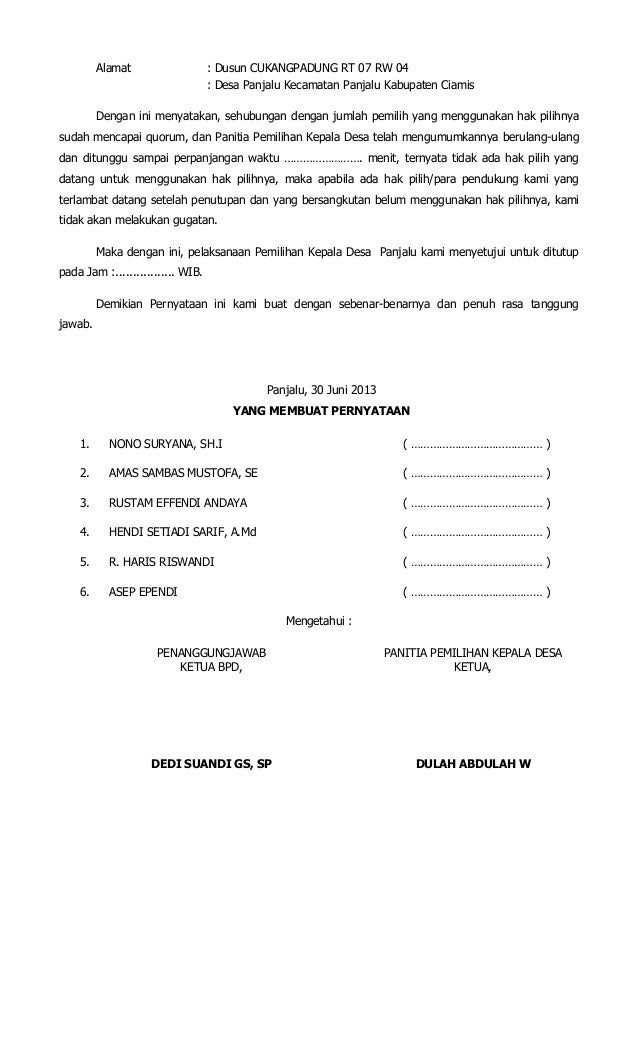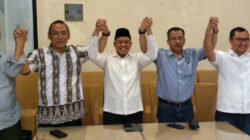As we all know, the process of electing a village head or better known as “Kepala Desa” in Indonesia can be a complex and rigorous process. Today we want to share about this process and its importance for the development of rural communities in Indonesia.
Anak Singkong: Pemilihan Kepala Desa Karyasari
Have you heard about the 2014 Indonesian movie “Anak Singkong”? It tells the story of a village boy who becomes a successful businessman. One of the main plot points of the story is the election of the Kepala Desa of the main character’s village, Karyasari.
What is the Kepala Desa?
The Kepala Desa is the elected head of a rural village in Indonesia. They are responsible for managing and leading the village in all aspects of development such as health, education, economy, infrastructure and culture.
Why is the Kepala Desa Election important?
The election of the Kepala Desa is an important process for the development of rural communities. It provides the villagers with the opportunity to choose their leader based on their vision, commitment and capacity. This democratic process ensures that the most competent and capable person is chosen to lead the village to prosperity.
What are the benefits of a transparent and democratic Kepala Desa Election?
A transparent and democratic Kepala Desa Election has numerous benefits for both the village and its people. Some of the benefits include:
- Increased government accountability and transparency
- Improved village services and infrastructure
- Empowerment of local communities
- Enhanced social cohesion and participation
- Encouragement of innovation and entrepreneurship
Some ideas for a successful Kepala Desa Election
Here are some ideas that can help ensure a successful Kepala Desa Election:
- Increased voter education and awareness
- Timely and accurate voter registration processes
- Fair and impartial election administration
- Transparent and independent vote counting and tallying
- Robust and accessible complaint procedures
How to Organize a Democratic Kepala Desa Election?
Here are some steps that can help organize a democratic Kepala Desa Election:
- Formulate clear and transparent election laws and regulations
- Establish an independent election commission to oversee the election process
- Conduct voter registration procedures to ensure accuracy and fairness
- Provide candidates with equal access to public information and platforms
- Set up robust complaint and dispute resolution mechanisms
- Ensure security and safety during the election process
- Facilitate voter education and awareness campaigns
Some tips for a successful Kepala Desa Election
Here are some tips that can help ensure a successful Kepala Desa Election:
- Involve all stakeholders in the process, including government officials, NGOs and marginalized groups
- Ensure that the election process is free from any form of intimidation or harassment
- Encourage participation and engagement from all members of the community
- Provide access to information and resources to enable informed decision-making
- Promote transparency and fairness throughout the entire election process
- Emphasize the importance of democracy and civic engagement in the process
Laporan Pelaksanaan Pemilihan Kepala Desa Panjalu Kab. Ciamis Tahun 2013

The 2014 Anak Singkong movie is not just a work of fiction, but rather a reflection of the real-life challenges that rural communities in Indonesia face. One such example is the Kepala Desa Election in the village of Panjalu, Kabupaten Ciamis in 2013.
What happened during the election in Panjalu?
According to the report, the election was marred by various irregularities including voter intimidation, ballot stuffing, and other forms of electoral fraud. The losing candidate filed a complaint with the local election commission, which subsequently led to a re-vote.
What can we learn from this?
The case of Panjalu highlights the importance of maintaining the integrity and transparency of the election process. It also emphasizes the critical role of the independent election commission in ensuring a fair and democratic election.
Contoh Surat Teguran Bpd Ke Kepala Desa – Resep Ku Ini

Another important aspect of the Kepala Desa Election is the role of various community groups and stakeholders. One such example is the role of the “Badan Permusyawaratan Desa” (BPD) or the Village Consultative Body.
What is the BPD?
The BPD is a group of representatives from various community groups in the village such as religious leaders, women’s groups and youth groups. They are responsible for advising and assisting the Kepala Desa in the decision-making process.
What is the role of the BPD in the Kepala Desa Election process?
The BPD plays a critical role in ensuring a transparent and democratic election. They are responsible for preparing the voter list, verifying candidate eligibility, and monitoring the election process to ensure fairness and impartiality.
What is a Surat Teguran?
A Surat Teguran is a written warning or reprimand that is issued by the BPD to the Kepala Desa if they fail to perform their duties or violate their responsibilities. The issuance of a Surat Teguran is one way that the BPD can hold the Kepala Desa accountable and ensure that they are acting in the best interests of the community.
Tahapan Pemilihan Kepala Desa

Now that we know the importance of the Kepala Desa Election process and the various actors involved, let’s take a closer look at the different stages of the election process itself.
What are the stages of the Kepala Desa Election process?
According to the official guidelines set by the Ministry of Home Affairs, the Kepala Desa Election process consists of the following stages:
- Preparation of voter list (Daftar Pemilih)
- Candidate registration and verification (Pendaftaran Calon Kepala Desa)
- Campaign period (Masa Kampanye)
- Election day (Hari Pemilihan)
- Vote counting and tallying (Penghitungan Suara)
- Announcement of election results (Penetapan Hasil Pemilihan)
What happens during the campaign period?
During the campaign period, candidates are given the opportunity to present their vision and platform to the community. They are allowed to hold public rallies, distribute campaign materials and engage with the voters to gain their support.
What happens on election day?
On election day, registered voters are allowed to cast their vote at the designated polling stations. The voting process is conducted using ballot papers, and voters are required to indicate their preferred candidate by placing a mark on the ballot paper.
What happens after the election?
After the election, the vote counting and tallying process is conducted in the presence of witnesses from the candidates and other relevant parties. The candidate with the highest number of valid votes is declared the winner and their victory is announced to the public.
Ratusan Perangkat Desa Nganjuk Dilantik Ditengah Polemik, Pihak Yang Merasa Dirugikan Bisa

As we have seen, the Kepala Desa Election process is not without its challenges. A recent example of this is the controversy surrounding the inauguration of hundreds of village officials or “Perangkat Desa” in Nganjuk, East Java.
What happened in Nganjuk?
The controversy in Nganjuk arose due to allegations of nepotism in the selection of village officials. It was reported that many of the officials who were appointed had close ties to the Kepala Desa and were not selected based on their qualifications or capacity.
What can we learn from this?
The case of Nganjuk underscores the importance of ensuring transparency and accountability in all aspects of the Kepala Desa Election process. It also highlights the crucial role of monitoring and oversight to prevent any form of misconduct or malpractice.
In conclusion, the Kepala Desa Election is an essential process for the development of rural communities in Indonesia. It provides an avenue for democratic participation and engagement, promotes transparency and accountability, and empowers local communities in decision-making. However, as we have seen, it is not without its challenges and requires continuous improvement and monitoring to ensure its effectiveness.












